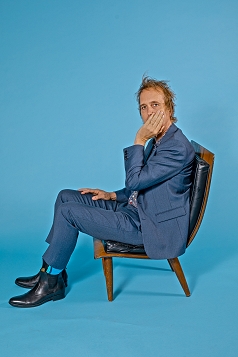Soap And Water
Soap and Water is the latest album from Chuck Prophet. It’s a burst of unrestrained creativity from a man who enjoys confounding people’s expectations. “When I get some kind of inspirational virus, I follow it through to its conclusion. The virus starts with two or three songs that take me someplace I haven’t been. It’s like writing a play; the songs are characters, inhabited by their own needs or whatever. This time there’s probably more devil-may-care spirit to it. It’s more spontaneous, less introspective. I sang a lot of it live and the musicians played it on the floor, live.”
The twelve tunes on Soap and Water run the gamut from lavishly arranged tunes featuring a string section and Nashville’s Methodist Church Children’s Choir to minimal late night meditations caught on the fly in one take.
Prophet recorded the album in San Francisco at Closer Studios and Nashville at Alex the Great with co-producer Brad Jones (Yo La Tengo, Josh Rouse, Dolly Parton) who helped keep Prophet on point. Prophet explains, “When I produce myself, I inevitably get to a place where I wake up in the middle of the night, in a cold sweat with bats coming out of my head. It was nice to work with someone who had my back. Brad was able, in his own gentle way, to keep me between lanes.
“The musicians involved are all friends. We approached this record differently. We gave all the musicians and engineers a stake in the masters. I think the traditional system doesn’t work anymore. These talented, difficult people all played their hearts out. You can hear it.”
Soap and Water kicks off with “Freckle Song,” “I set out to write a one-chord classic like ‘Electric Avenue’ by Eddy Grant, but when we got into the studio I wussed out and came up with a chord change for the bridge to play my guitar over.” The lyrics? “When I say ‘Let me please help you out of that dress, before you catch a cold,’ it makes me laugh now. It’s all so very suave. Like Gregory Peck or someone. That’s the beauty of songwriting, you get to be whoever you want to be.”
“Doubter Out of Jesus (All Over You)” is a kind of electro-punk blues produced with digital keyboard, drum machine and a couple guitars plugged directly into the board. “I love guys like Alan Vega, Alex Chilton, Mink DeVille…guys who’ve been able to take classic Brill Building pop and deconstruct it.”
“Every time you blink, every time you rest your eyes, there’s another new crop of tragedies off the bus,” Prophet laughs about the inspiration for “Small Town Girl.” With a simple choogin’ Bo Diddley guitar, heartrending female vocal from his wife Stephanie Finch, percussion tapped out on the top of a guitar case and Stygian guitar and organ accents. Prophet delivers this tale of innocence, in a gentle, mournful tone.
“Let’s Do Something Wrong” starts out quiet and meditative. Prophet’s half-spoken, half-sung vocal with lyrics repeating like a sick mantra (“Let’s do something wrong, let’s do something stupid”) accented by his sparse, single-coil guitar and a marching drumbeat. The bridge ramps up into full bi-polar glory with Prophet pleading at the top of his lungs, “I always did the right thing, what did it get me?” Prophet’s closing solo weaves through a rush of strings and a mocking children’s chorus.
The album also includes the surrealistic poetry of “A Woman’s Voice”; “Would You Love Me?,” a folk ballad full of eerie sounds; “I Can Feel Your Heartbeat,” a stuttering bit of Southern rock cha-cha; “Downtime,” an off the cuff in the studio ode to the pleasures of isolation; and the title track, a gloves-off, back-and-forth duet with his wife Stephanie.
The album closes quietly with “Happy Ending,” a breezy meditation on loss and limitation that slowly builds to a climax with a hint of hope and a glimmer of light. Prophet’s quiet finger-picking and weary vocal portray the uncertainty one feels when a relationship comes to an ambivalent conclusion.
Chuck Prophet was born and raised in Whittier, California, President Richard M. Nixon’s hometown. “If you shook a tree in my neighborhood, five guitar players would fall out,” Prophet recalls. “My sister had a lot of records, Stones, Bowie; the music was magical to me. Everyone I knew had picked up a guitar at some point. It was natural to start playing, but I never thought of it as a vocation.”
“I moved up to San Francisco to go to college, majoring in financial aid. I saw the Dead Kennedys at the Mabuhay Gardens (the legendary punk venue) and all the early Slash Records bands like Rank and File.” Prophet soon hooked up with Green on Red, a groundbreaking, hard to pigeonhole band that would act as a catalyst for the Paisley Underground and alt-country sounds of subsequent years. “Green on Red were the first band I’d met with a van and a gas card, so I joined up. It was summer, I figured I’d get in the van and go back to school in the fall.”
That summer vacation turned into eight years and as many albums with Green on Red - a band many people, including Prophet himself, are still trying to make sense of - burning through more than one major label deal. “Some people thought we were the saviors of rock ‘n’ roll; other people thought we were pathetic knuckleheads. I think they’re both right. It was like being in a motorcycle gang; we lived out all the excesses.”
When Green on Red disintegrated, Prophet launched a solo career with Brother Aldo (1990), an album that fused his love of blues, rock, Waylon Jennings and Richard and Linda Thompson. His jagged guitar lines, gritty baritone and stellar songwriting soon made him a cult figure in Europe, while stateside he won fans like Lucinda Williams, Stephen King, Ryan Adams, songwriting legend Dan Penn (a song they co-wrote, “I Need A Holiday” was covered by the mighty Solomon Burke) and Kim Richey with whom he co-wrote Cyndi Thompson’s Top 40 hit “I’m Gone.”
A video and film enthusiast, Prophet along with Teddi Bennet makes his own no-budget videos and is always ready to collaborate as musician, producer or sideman to other projects. He’s done sessions with Warren Zevon and Cake and produced Kelly Willis’s latest Rykodisc album, Translated from Love, co-writing some of that album’s songs as well. He’s also writing and editing Road Song for the San Francisco Chronicle’s book division. “I’m putting together a collection with lots of pictures and ephemera that will explain how you can go from city to city and maintain some sort of sanity. Or not. The road brings out the best and worst in people so I thought I’d ask other road warriors to let me edit their diaries.
For the rest of the year, Prophet will be on the road himself, doing what he does best. “I must be one of the last musicians that still enjoys touring,” Prophet says. “When people see us live they’re going to get involved. We wiggle and we wobble but we don’t fall down.”
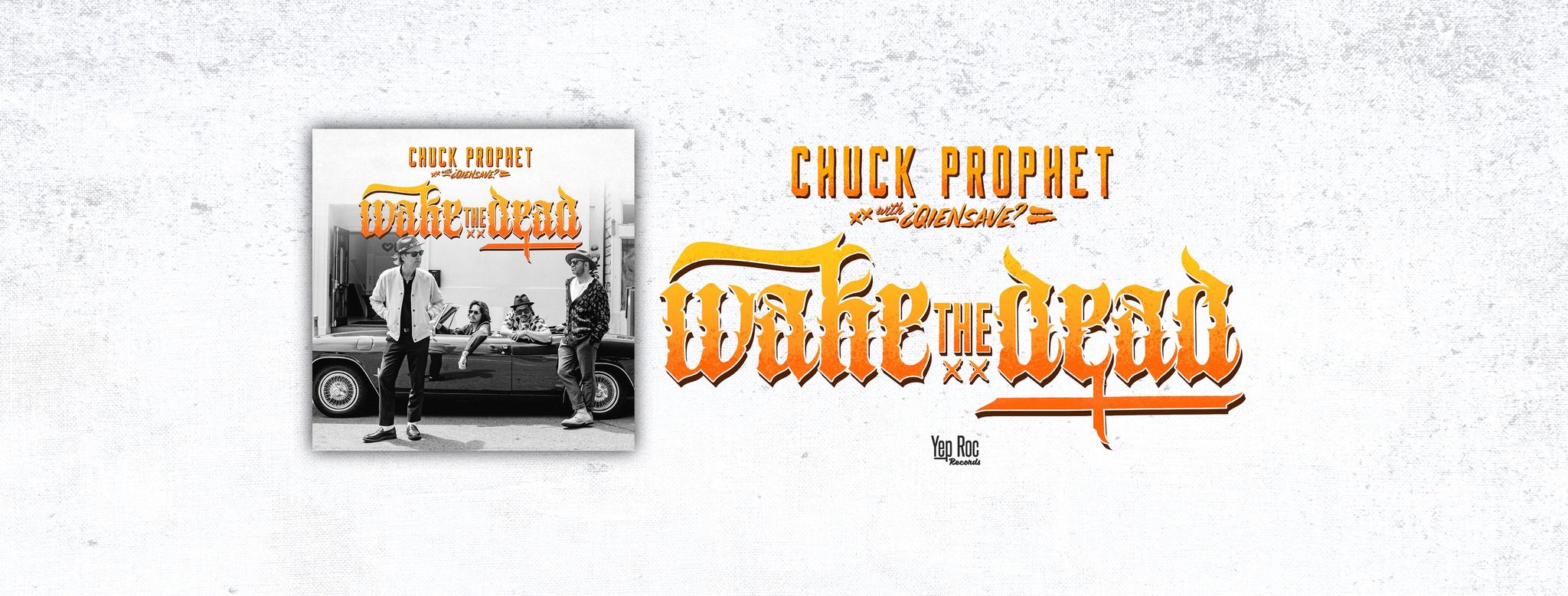

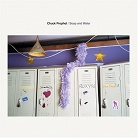



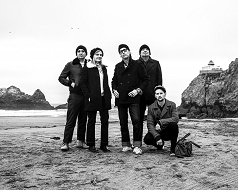
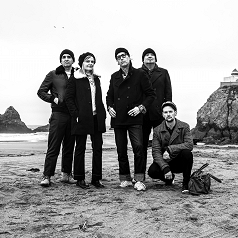
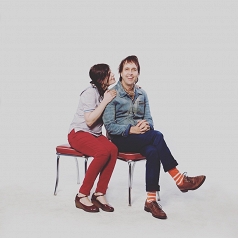
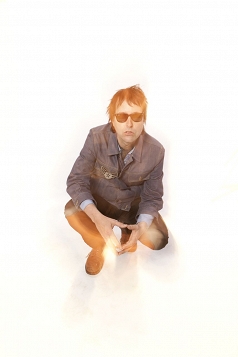

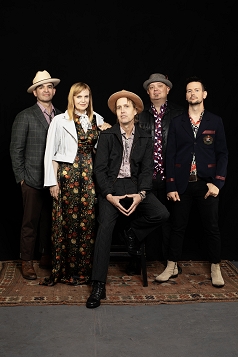
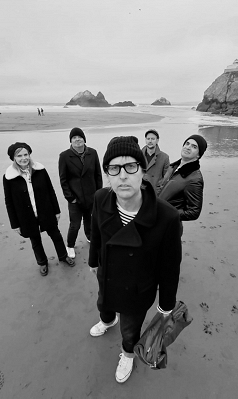
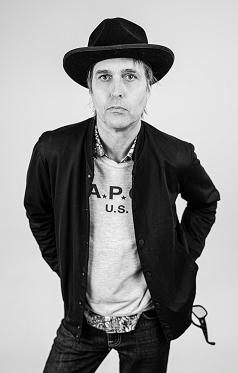
3_238_159auto_s_c1.jpeg)
